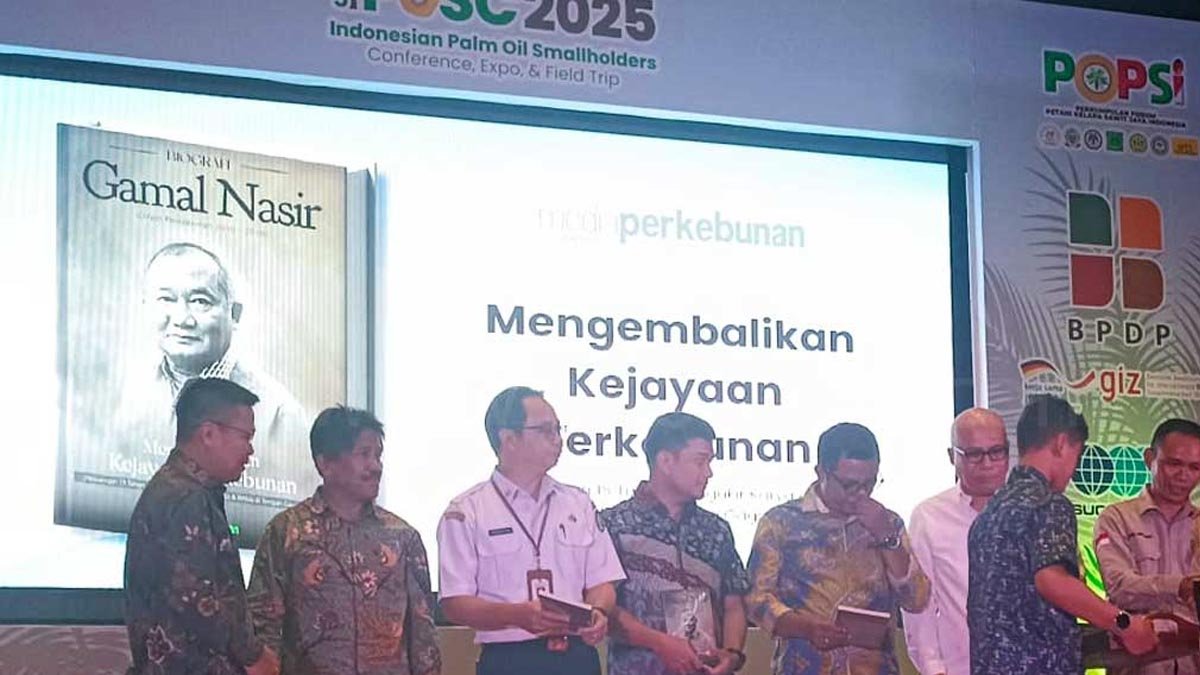PALMOILMAGAZINE, KUBU RAYA – A new biography titled “Restoring the Glory of Plantations” has been officially launched, capturing the life and legacy of Gamal Nasir, who served as Indonesia’s Director General of Plantations from 2010 to 2016. The book not only documents his professional journey but also reveals the personal struggle of the late official, who continued to serve despite battling kidney failure.
The biography was compiled by a team of five writers, including members of Gamal Nasir’s family, over the course of a year following his passing on September 3 of last year. The project received support from key figures such as Heru Tri Widarto, Secretary of the Directorate General of Plantations, and Bambang, Deputy for Plant Quarantine at the Indonesian Quarantine Agency, both of whom contributed to the publication.
The launch of “Restoring the Glory of Plantations” was not just a tribute to Gamal Nasir’s dedication but also an inspiration for future generations to continue strengthening Indonesia’s plantation sector, a vital pillar of the national economy.
Also Read: BPDP-UNJA Collaboration Strengthens Palm Oil Human Resource Development
Speaking at the event, Heru Tri Widarto highlighted the enduring role of plantations in sustaining Indonesia’s economy, even during crises. “Plantations have consistently contributed positively, both economically and socially, to the nation,” he said.
Heru also shared personal memories of working with Gamal Nasir since his early career as a junior civil servant in 2007. He described Gamal as not only a committed bureaucrat but also a humble leader who was approachable, supportive of his juniors, and known for his sense of humor. “He was one of the finest figures in the Ministry of Agriculture, whose contributions to the plantation sector were immense,” Heru noted.
He further emphasized the importance of carrying forward Gamal Nasir’s vision, particularly in improving the productivity of smallholder plantations across palm oil, rubber, coffee, cocoa, and coconut. “With continuous innovation and guidance, we can revive the glory of our people’s plantations,” Heru added.
The book launch also served as a reminder that the struggle to develop Indonesia’s plantation sector is ongoing. “May his dedication be rewarded, and may his spirit inspire us all,” Heru concluded.
The event drew an enthusiastic response from the community. Hendra Purba, Secretary-General of the Indonesian Palm Oil Farmers Organization (POPSI), noted the overwhelming turnout. “With only two months of preparation, more than 800 participants attended. Last year it was around 500. This time, many couldn’t even get into the hall,” he said.
According to Hendra, the book was born out of Gamal Nasir’s personal wish. “He once told me, ‘Pak Hendra, please make a book about me, but only after I’m gone.’ He said this during a working visit to Lampung,” Hendra recalled emotionally.
Hendra also described Gamal as a leader deeply connected to farmers and steadfast in championing their interests. Among his enduring legacies are policies that improved farmers’ access to training and support services. “He always insisted that there should never be an excuse for the government not to help farmers. That principle guided him until his last days,” Hendra concluded. (P2)
